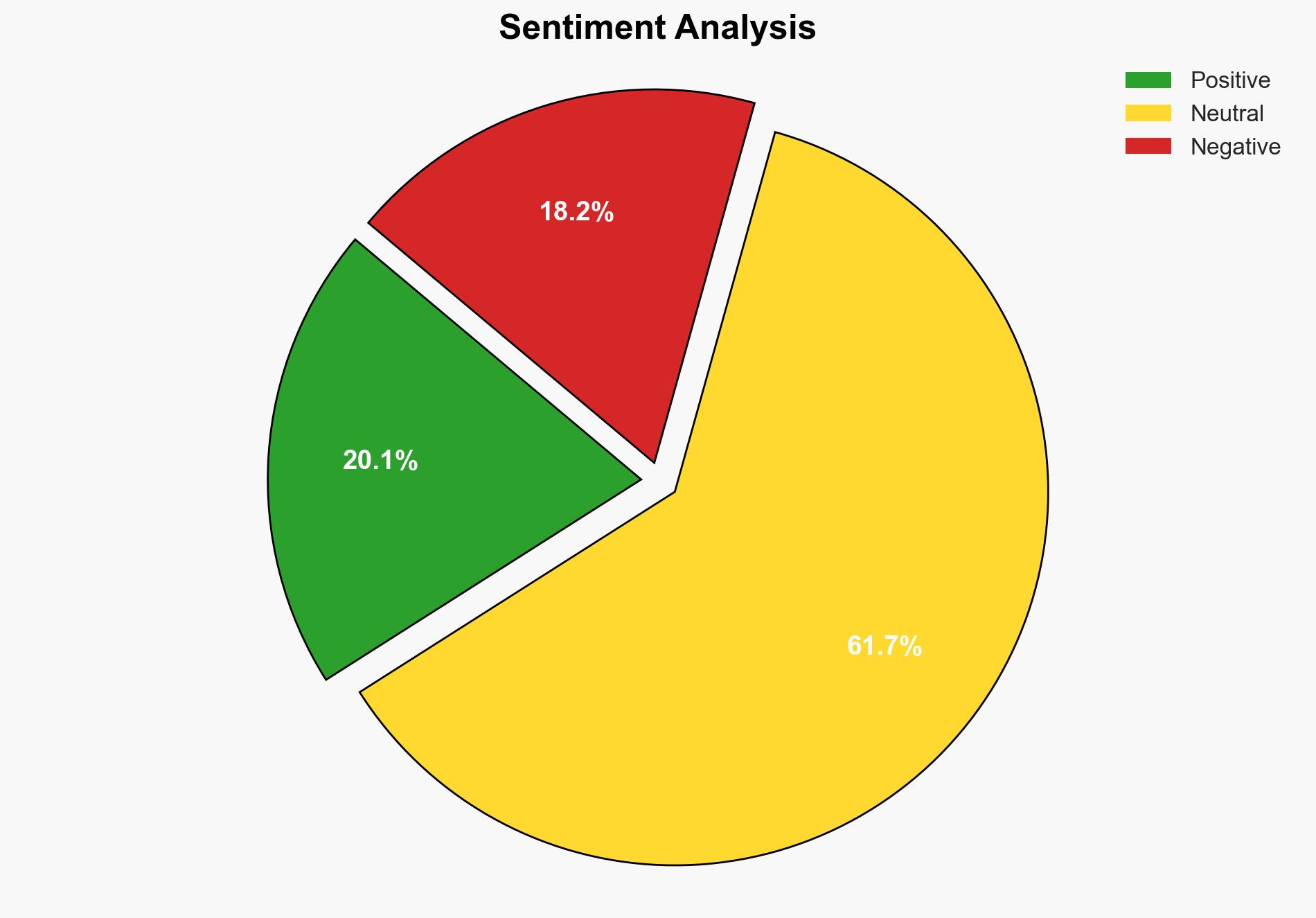Digital transformation without cybersecurity is a risk that public sector cant afford – TechRadar
Published on: 2025-03-28
Intelligence Report: Digital Transformation Without Cybersecurity is a Risk That Public Sector Can’t Afford – TechRadar
1. BLUF (Bottom Line Up Front)
The UK public sector’s accelerated digital transformation, driven by AI and cloud-based services, significantly increases cybersecurity risks. The expansion of digital services, while enhancing efficiency and innovation, exposes sensitive citizen data and essential services to potential cyber threats. The integration of AI-driven tools and third-party providers expands the attack surface, posing risks to national security and public safety. Immediate action is required to strengthen cybersecurity measures to safeguard public sector operations and citizen data.
2. Detailed Analysis
The following structured analytic techniques have been applied for this analysis:
General Analysis
The UK government’s push for digital transformation through AI and digital services is a double-edged sword. While it promises enhanced public service delivery, it also introduces new vulnerabilities. The integration of AI-driven tools and cloud-based services increases the complexity and interconnectivity of government systems, making them susceptible to cyberattacks. The recent halt of AI prototypes in the welfare system due to security concerns underscores the need for robust cybersecurity measures. The reliance on third-party technology suppliers further complicates the security landscape, as poor security practices by these suppliers can expose entire government networks to cyber threats.
3. Implications and Strategic Risks
The expanded digital footprint of the public sector increases the risk of cyberattacks, including those by nation-state actors. The potential for supply chain compromises leading to outages in essential services such as healthcare and emergency response networks poses significant risks to national security and public safety. The exposure of sensitive citizen data, including financial and medical records, heightens the risk of fraud, identity theft, and physical harm. The evolving nature of cyber threats, including AI-powered deception attacks, requires continuous vigilance and adaptation of cybersecurity strategies.
4. Recommendations and Outlook
Recommendations:
- Implement comprehensive cybersecurity frameworks that include continuous monitoring and assessment of digital ecosystems.
- Enhance collaboration with third-party providers to ensure adherence to high security standards and practices.
- Invest in AI-driven cybersecurity solutions to detect and mitigate advanced threats in real-time.
- Develop regulatory measures to enforce cybersecurity compliance across all levels of government and associated entities.
Outlook:
In the best-case scenario, the UK public sector successfully integrates robust cybersecurity measures, minimizing risks and enhancing public trust in digital services. In the worst-case scenario, inadequate cybersecurity measures lead to significant breaches, resulting in compromised citizen data and disrupted essential services. The most likely outcome involves a gradual improvement in cybersecurity practices, with ongoing challenges due to the evolving nature of cyber threats and the complexity of digital transformation.
5. Key Individuals and Entities
The report mentions significant individuals and organizations such as Bitsight and the National Cyber Security Centre. These entities play crucial roles in the cybersecurity landscape, providing insights and warnings about potential threats and vulnerabilities.





